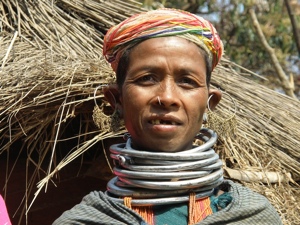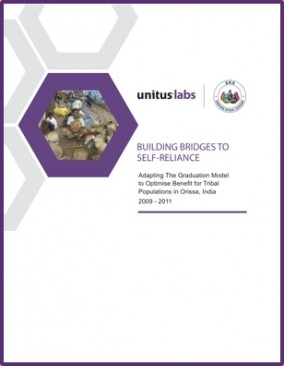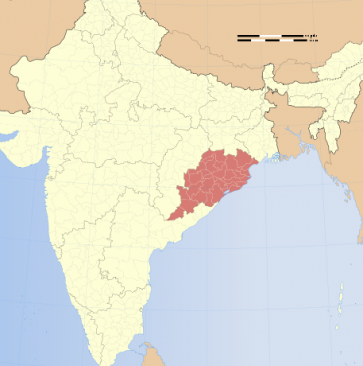
Woman wearing traditional jewelry
SKS NGO overcomes great physical and cultural obstacles to secure lasting change in some of Orissa’s most isolated ultra poor communities.
Isolated rural communities represent an exceptional challenge for ultra poor interventions, as extreme distances and dramatic cultural differences make it very difficult to initiate change, and even harder to sustain gains after a program concludes.
With the support of the Sorenson-Unitus Ultra Poor Initiative (UPI), Hyderabad-based SKS NGO set out to overcome these obstacles, exploring new models that could take root in the isolated tribal communities of the eastern state of Orissa. Based on its previous work with a CGAP-Ford Foundation Graduation Program-modeled Ultra Poor Program (UPP) in Andhra Pradesh, the team set out to create a locally managed safety net in one of India’s poorest states and in an area where no other support services were available.
 Seeking ways to extend the benefits beyond the conclusion of the intervention, the UPP team had to devise mechanisms to train its members to be 100% self-sufficient and embrace their role as each other’s caretakers before the end of the two year intervention. To achieve this, the team developed a set of enhancements to the traditional graduation model that addressed the most common challenges faced by tribal populations, specifically the frequent shocks to their food supply, health and income that result from their isolation.
Seeking ways to extend the benefits beyond the conclusion of the intervention, the UPP team had to devise mechanisms to train its members to be 100% self-sufficient and embrace their role as each other’s caretakers before the end of the two year intervention. To achieve this, the team developed a set of enhancements to the traditional graduation model that addressed the most common challenges faced by tribal populations, specifically the frequent shocks to their food supply, health and income that result from their isolation.
Alongside traditional graduation program components, UPP introduced a food bank scheme and trained members to act as community health professionals to ensure the health and well-being of fellow members in times of crisis. They also introduced new livelihoods to allow members to diversify their incomes, financial literacy training and a mandatory savings scheme to provide protection against unexpected expenses, and self-help groups to link members to formal savings accounts.

Map highlighting Orissa state in India
These program enhancements, along with elements of the traditional graduation model, enabled the community to sustain the positive changes to their quality of life. Not only did 850 of the 887 participants graduate from the program, but they now have food banks in place for emergencies, primary health workers to diagnose and treat common ailments, an understanding of financial management with access to a bank account and loans, savings of as much as Rs 10,000 (US $200) per individual, and a set of skills and means to generate additional income.